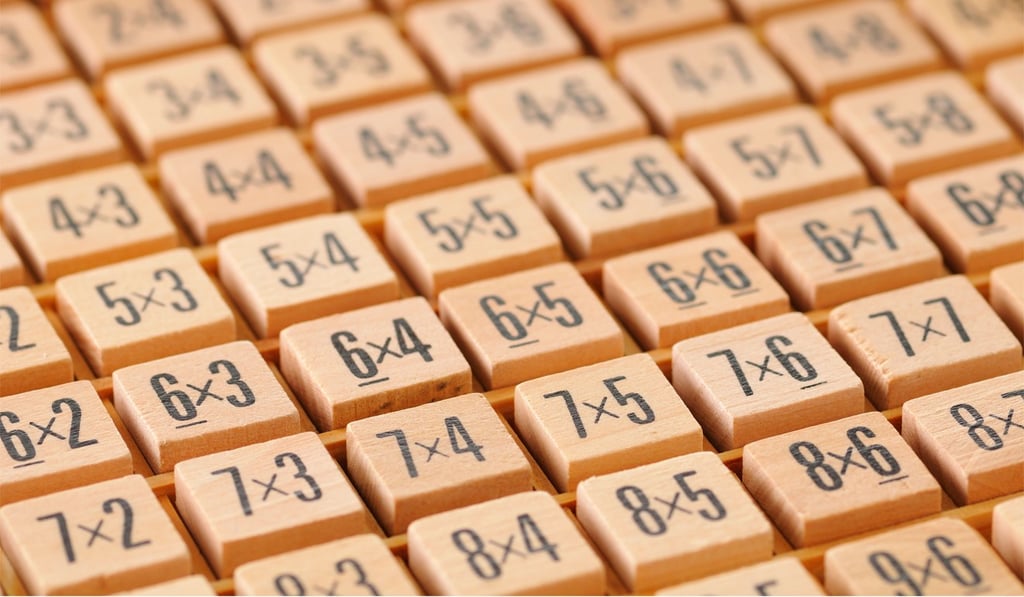How can I help my child learn multiplication tables? A parent in Hong Kong worries that their home practice is ineffective
Knowing multiplication tables off by heart is essential for a child to develop good mental arithmetic, but not all brains retain information easily. Luckily there are lots of effective – and fun – ways that parents can help at home

My Year Four son finds it really hard to learn his times tables, a Hong Kong parent writes. We help him practise at home, but he never does well in his tests at school. He gets upset and says the teacher goes too fast, then he loses confidence even more. What should we do?
Many parents experience frustrations when trying to help their children learn the multiplication tables. It can be very challenging, especially if a child has the type of brain that does not retain facts or information easily, even after repeated practice.
How a little sadness is vital to make your children more happy
The educational focus these days is more directed towards acquiring skills and engaging in critical thinking rather than simply learning facts. Many pupils, therefore, find repetitive tasks and rote learning relatively boring as they have grown up with a more stimulating learning process.
There is no standardised way of teaching times tables. Methodologies vary from child-centred approaches to more didactic rote learning. However it is done, it has remained a vital part of the curriculum for good reason. When the recall becomes automatic, it speeds up a child’s mental and written maths enormously, taking away the stress of having to make calculations before applying results to solving problems.
I have spoken with parents who never grasped the logic behind learning their times tables at school, and feel that their resulting inability to do basic multiplication along with a general incompetence with mental arithmetic has plagued them all through their lives. They mention, for example, instances such as difficulties in working out restaurant tips and converting money into foreign currency on holiday.

Basic multiplication facts need practising and reinforcing over and over again. Unfortunately, for most children there is no quick fix. Encourage regular practise for five or 10 minutes a day. Try to be creative and vary your approach. Test the facts in numerical order and then mix things up to help your son’s confidence in recalling each one quickly. Also, make up simple multiplication problems to help him get used to applying his knowledge. For example: five dogs, how many legs? Seven cats, how many ears? Make it fun!